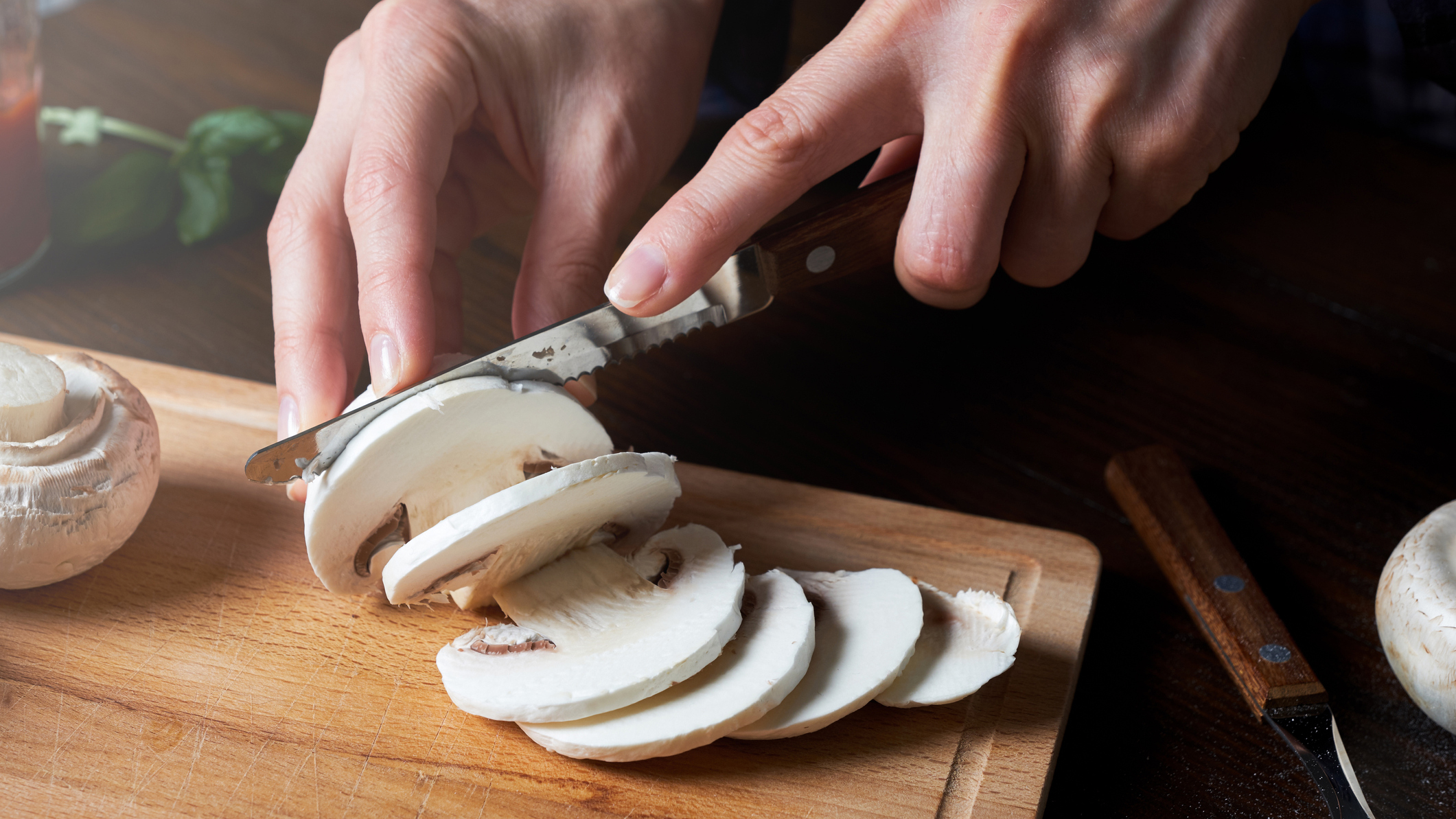Why mushrooms can safeguard your brain and reduce dementia risk
Adding mushrooms to your diet could help fight the risk of Alzheimer's by up to 52% (among a load of other benefits)


With over 50,000 species of mushroom prepared a lot of different ways it's likely we all can find one that we enjoy eating. Whether sliced on top of pizza, sauteed in a little butter and garlic or chopped in a chilli, it's time to add this versatile veggie to your favourite recipes. Why? Science has found that regular eating of mushrooms could reduce the early signs of Alzheimer’s disease.
Mild Cognitive Impairment (MCI) is thought to be a transition phase between age-associated cognitive decline and Alzheimer's, the degenerative brain disease affecting over six million Americans. MCI is considered a precursor to Alzheimer's just like being overweight is a precursor to diabetes. However, the Journal of Alzheimer’s Disease found that the vegetable potentially has neuroprotective properties which can delay this neurodegeneration. There's never been a better time to throw a portobello on one of the best health grills.
The study's authors write: "We hypothesized that mushroom consumption is associated with reduced odds of having MCI, and this association is independent of potential confounders such as age, gender, education level, lifestyle factors, and certain medical conditions that are associated with cognitive impairment."
The researchers in Singapore worked with the diets of 663 men and women across six years, carrying out memory and thinking tests on the men and women. The research concluded that participants who ate one-two portions (this works out at around ¾ cup of cooked mushrooms) a week, had a 43% reduced chance of developing MCI. The individuals who ate over two portions a week had a 52% reduction in risk.

Previous research in this area from Tohoku University found that eating mushrooms three times a week is also linked to a 19% reduced risk of dementia.
Registered nutritionist Rhiannon Lambert, founder of Rhitrition, said, "Inflammation in the brain is a significant factor in Alzheimer’s Disease and Parkinson’s Disease, which fall under the umbrella of neurodegenerative diseases.
"Mushrooms contain polyphenols, polysaccharides, vitamins, carotenoids, and other minerals which have shown some positive benefits. This shows promising research in this area, but it is important to remember that, of course no one food will be enough to have a big enough impact on your overall health. Focusing on a healthy balanced diet as a whole is likely to be much more beneficial."
Start your week with achievable workout ideas, health tips and wellbeing advice in your inbox.
Lambert tells us edible mushrooms may help in the progression of these neurodegenerative diseases, and can be added to a batch of roasted vegetables, risotto, soup and so much more – you can check out our best vegan cookbooks guide for more mushroom inspo. They're also one of our five-a-day, contain fibre to benefit gut health and can even be enriched with vitamin D source, a key recommendation in our list of best vitamins for women over 50.
Jessica is an experienced fitness writer with a passion for running. Her career in journalism began in local news and she holds a Masters in journalism. Jessica has previously written for Runners World, penning news and features on fitness, sportswear and nutrition.
When she isn't writing up news and features for Fit&Well covering topics ranging from muscle building, to yoga, to female health and so on, she will be outdoors somewhere, testing out the latest fitness equipment and accessories to help others find top products for their own fitness journeys. Her testing pairs up nicely with her love for running. She recently branched out to running 10Ks and is trying to improve her time before moving on to larger races. Jessica also enjoys building on her strength in the gym and is a believer in health and wellness beginning in the kitchen. She shares all of this on her running Instagram account @jessrunshere which she uses for accountability and for connecting with like-minded fitness lovers.
